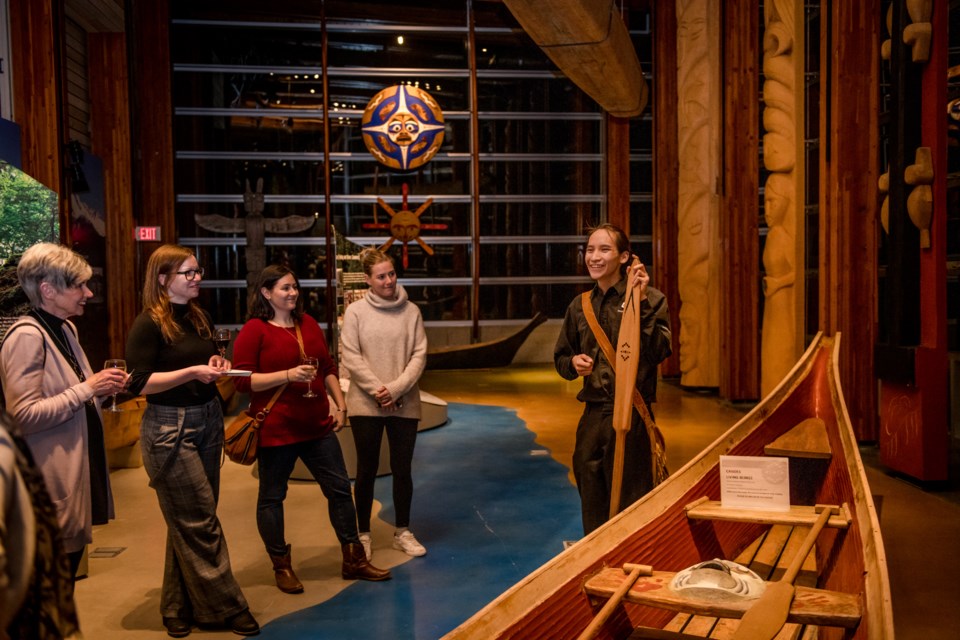Before he began work as Whistler Blackcomb’s (WB) liaison to the local First Nations, Court Larabee asked a group of Squamish and Lil’wat youth a simple question: Does Whistler feel like home to you?
“And guess what their answer was: No,” Larabee said.
Now, the Squamish Lil’wat Cultural Centre (SLCC) is aiming to create a more inclusive environment for local First Nations through the development of a new Cultural Sensitivity and Indigenous Leadership Program that just got a major boost in the form of a US$50,000 grant from the Katz Amsterdam Charitable Trust, spearheaded by Vail Resorts’ CEO Rob Katz and his wife, bestselling author Elana Amsterdam.
“How do we build the SLCC and other businesses in Whistler and the Sea to Sky with Indigenous leadership? We’re not the hero solution, but how can we be part of it?” asked SLCC executive director Heather Paul, who said the grant money would help fund Phase 1 of the program, which will involve bringing on Indigenous leaders from the SLCC to develop the initiative.
The SLCC is already adept at training Indigenous staff through its Youth Ambassador program, where the roughly 600 graduates since 2008 have gained valuable experience in tourism, retail, serving and back-of-house operations. The goal of this new program, however, is to set up Indigenous participants for leadership positions throughout the corridor.
The [Youth Ambassador] program is creating staff,” Paul added. “But how are we creating Indigenous leaders? And not just Indigenous leaders that are invited to the table, but are a part of building a new table together.”
The program’s other component will offer cultural sensitivity training to local businesses looking to create a more inclusive, diverse work environment.
“The No. 1 strategy right now in my mind is if you don’t have diversity within the leadership and/or board level of your company, you’re not really making a decent effort,” said the Lacs Des Milles Lacs First Nation’s Larabee, who offers cultural competency training to a number local business and political leaders. “This is the time when the crucial change can happens by looking at our boards, our governments, and our companies and say, ‘Where is the diversity?’ If you don’t, you kind of run the lines of looking like a company that does a lot more lip service than community service.”
As part of the 60-year master development agreement signed in 2017 with the province and the Squamish and Lil’wat, WB has made it a major priority to have the Nations more involved at the ski resort that sits on their shared traditional territories. That effort has taken a number of forms, explained WB’s director of government and community relations Sarah McCullough, including an Indigenous human resources strategy aimed at becoming “an employer of choice for our Indigenous partners,” she said.
Along with regular employment tours to show Nation members the kinds of careers available at WB, McCullough said the resort has also implemented internal inclusivity training programs and looked at ways to become more accommodating to its Indigenous employees, adding that the company is currently exploring the option of creating a bereavement policy for Nation members.
“That’s one small example, but I think it’s a meaningful one because what we’re saying is we have respect for the cultural work that needs to be done in the community,” she added.
WB already works closely with the SLCC on a number of fronts, and McCullough said the cultural centre’s Indigenous leadership and cultural sensitivity program aligns well with WB’s effort to create a more diverse workforce.
“I don’t see anything that would stop us from learning from this program, from implementing pieces of it that we feel are complementary or aligned,” she noted.
As part of the Katz Amsterdam Foundation’s most recent round of grant funding, Whistler non-profit Zero Ceiling will receive US$15,000 to go towards its operational fund.




